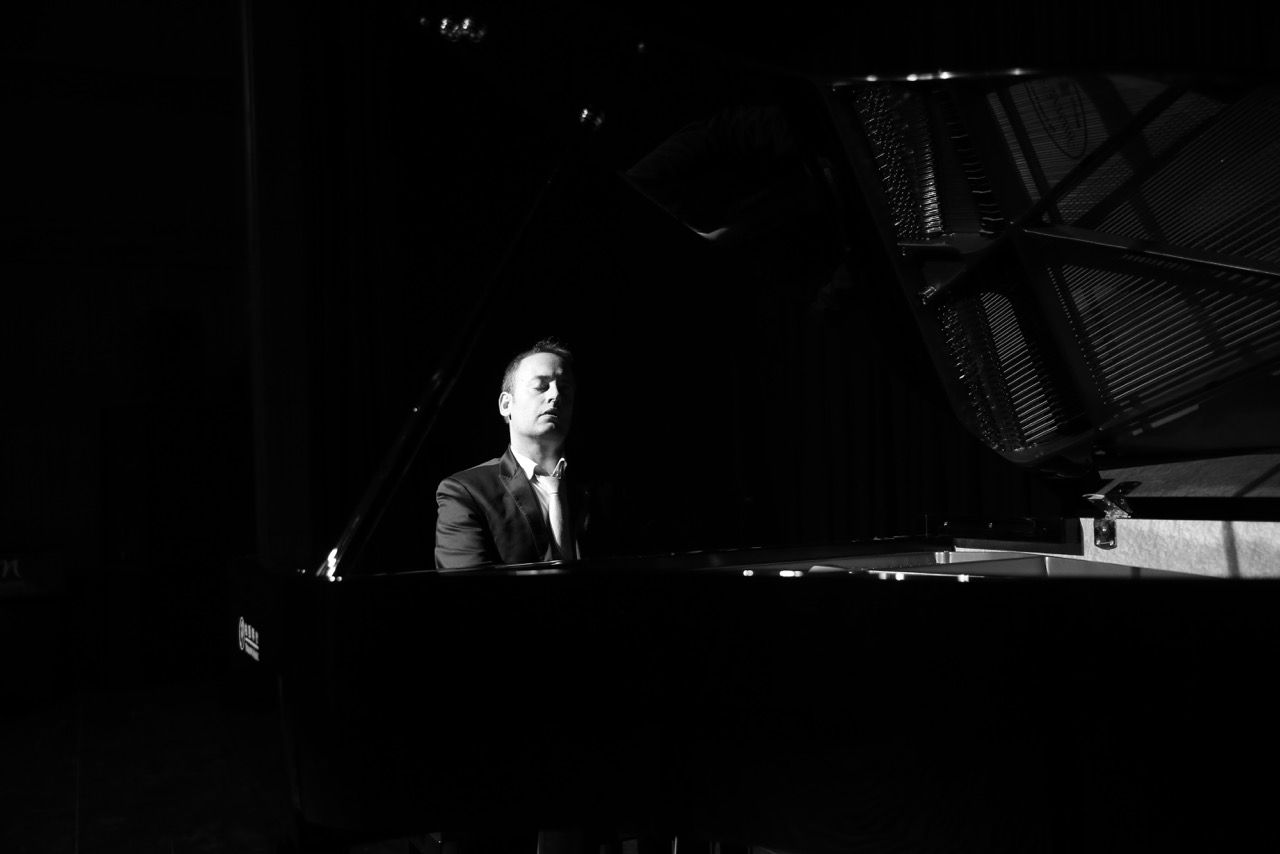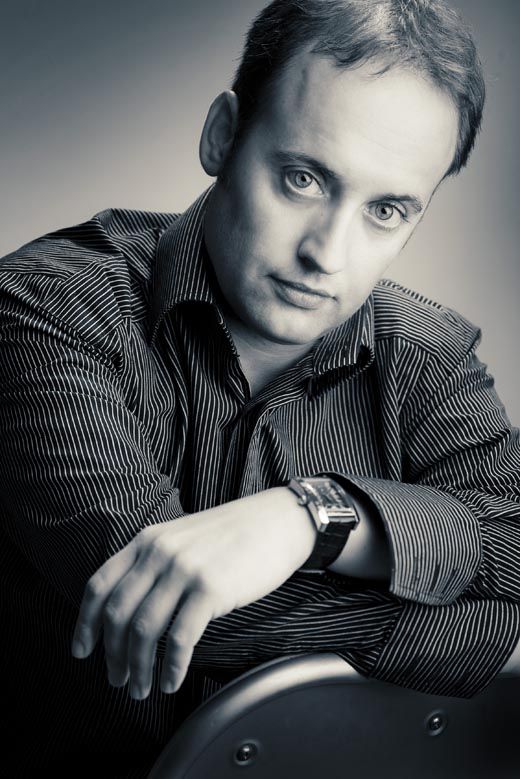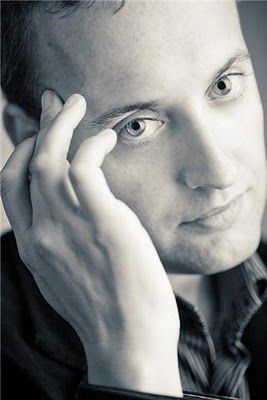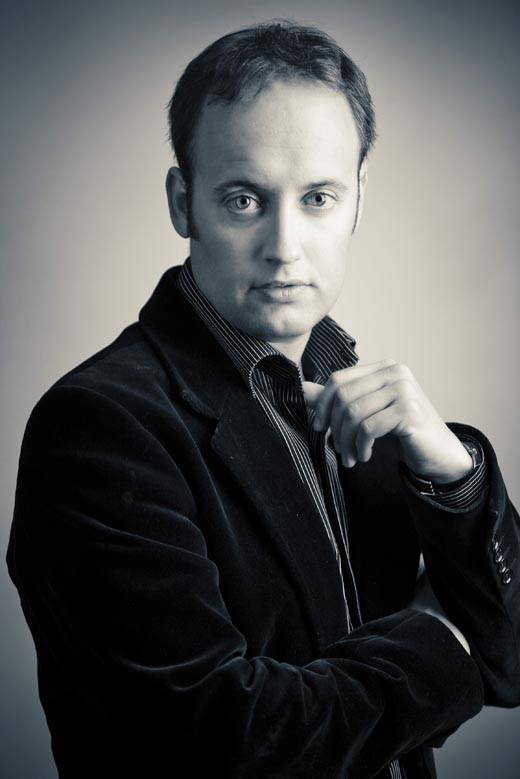
Óscar Martín, piano
Martín is an outstanding pianist, with more than enough temperament for the great occasions and with the necessary talent to succeed in every challenge.
(Moreno Calderón, Diario de Córdoba)

Martín is an outstanding pianist, with more than enough temperament for the great occasions and with the necessary talent to succeed in every challenge.
(Moreno Calderón, Diario de Córdoba)
Biography
The Spanish pianist Óscar Martín began his studies at the "Conservatorio Superior de Música" in Seville, where he studied under Professors José Antonio Coso and Ana Guijarro. He then moved on to the schools of music "Musikhochschule Freiburg" (Germany), "Escuela Superior de Música Reina Sofía" in Madrid (Spain) and "Conservatorium van Amsterdam" (Netherlands), studying with professors Tibor Szàsz, Vitali Berzon, Dimitri Bashkirov, Galina Eguiazarova and Jan Wijn . He has benefitted from the direct contact with such reknowned national and international musicians as Almudena Cano, Elza Kolodin, Philippe Entremont and Daniel Barenboim, among others.


Winner of the "Manuel de Falla" Prize in Granada and the First Prize in Chamber Music of the Jeunesses Musicales Competition in Spain, Óscar Martín has performed in venues such as the "Auditorio Nacional de Música" in Madrid, "Auditorio Manuel de Falla" in Granada, "Sociedad Filarmónica" in Bilbao, "Teatro de la Maestranza" in Sevilla, Auditorio "Alfredo Kraus" in Gran Canaria... and in numerous countries: France, Italy, Portugal, Germany, Switzerland, Austria, Holland, Belgium, Poland, Turkey, Czech Republic, Japan, China, Venezuela and USA, in international venues such as the "Cleveland Institute of Music" (USA), "Mozarteum" in Salzburg, "Spielhaus Winterthur" (Switzerland), "Teatro Teresa Carreño" in Caracas, "Palais de Beaux Arts" in Brussels or the concert hall of the “University Chopin” in Warsaw (Poland), where he made his debut playing “Suite Iberia” by Isaac Albéniz. Some of his recitals have been recorded by radio and TV channels such as TVE and RNE (Spain), Radio Vltava (Czech Republic) or WCLV in Ohio (USA).
Awarded with the Isaac Albéniz Medal 2017 at the Camprodón International Music Festival (Girona), he has performed as a soloist with orchestras such as "Orquesta Ciudad de Málaga", "Real Orquesta Sinfónica de Sevilla", "Zahir Ensemble" (playing the Piano Concerto by G. Ligeti in several music festivals), "Joven Orquesta Sinfónica Simón Bolívar", ... with conductors like Peter Gülke, Pedro Halffter, Ruben Gimeno, Juan García, Juan Rodríguez Romero, György Ràth, Santiago Serrate, Pablo Mielgo, James Ross, Josep Vicent, Manuel Hernández Silva, and Günter Neuhold (playing the second Piano Concerto by Bela Bartok with the orchestra "Oviedo Filarmonía" at "Auditorio Príncipe Felipe", reaping considerable success amongst the audience and critics).


Also noteworthy is his active participation in chamber music, outstanding examples of which are his recordings of music by José M. Sánchez Verdú and Arnold Schoenberg, published by "Verso" and "Naxos" labels respectively, and the recording, for “Musical Documentation Centre of Andalusia”, of the CD “Manuel Castillo. Works for cello and piano. Trios 1 and 2". His recording of the complete “Suite Iberia” by Isaac Albéniz on the "Lindoro" label was also critically acclaimed.
Regarding his pedagogical activity, he has been invited to teach in institutions such as Orquesta Joven de Andalucía, Escuela Superior de Música Reina Sofía (Madrid), Encuentro de Música y Academia de Santander (Spain), Forum Musikae (Madrid), Academia Galamian (Málaga) or Académies du Grand Paris (France). He is currently professor of piano at the Conservatorio Superior "Manuel Castillo" in Sevilla, as well as co-director of the pedagogical sessions "Rota Piano Week" (Rota. Spain).
"Martín is one of the new generation pianists who can really beat today´s music circuit. Through Bartók's work, a daring performer was discovered in Oviedo, who has no problem with risk, but with a certainty level that allows him a solid performance based on the temperament and a great technical skill".
"Óscar Martín is a truly different pianist, the opposite of those interpreters who go through more or less standardized canons: his interpretation is full of nuances that transcend the literalness of the score, but that enrich it greatly".
"The beginning with the Nocturnos Op.9 turned out to be exceptional, due to the sensitivity in handling Rubato, the delicacy of the phrasing, the clarity of the pulsation and the articulation. It was an intimate chopin, elegant, charming and dreamy, but never mannered or soft".
"Martín immersed himself in a 'Gaspard de la Nuit' magical and fanciful ('Ondine'), paused but tragic ('Le Gibet') and absolutely devilish ('Scarbo'), showing excellent precision and an excellent technical level; pure emotional display of an unrepeatable music".
"With these technical and expressive means, Martín gave intensity and depth to musics that in other hands would sound more insignificant. A good example would be the delicacy and clarity of the Song of the Star or the Bridal Procession of Lohengrin".